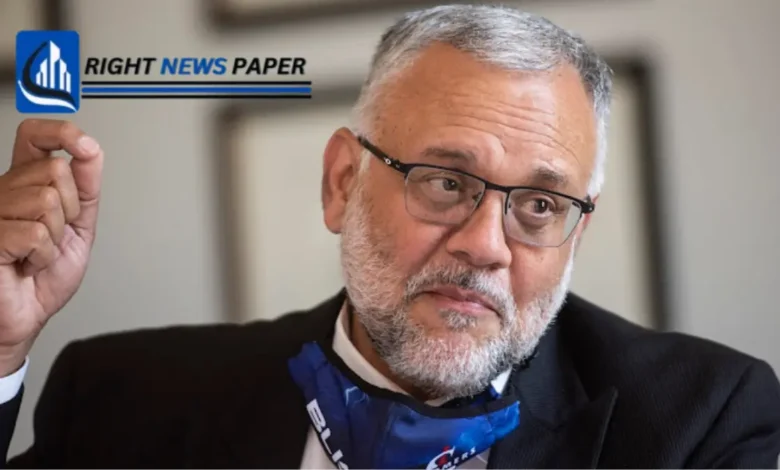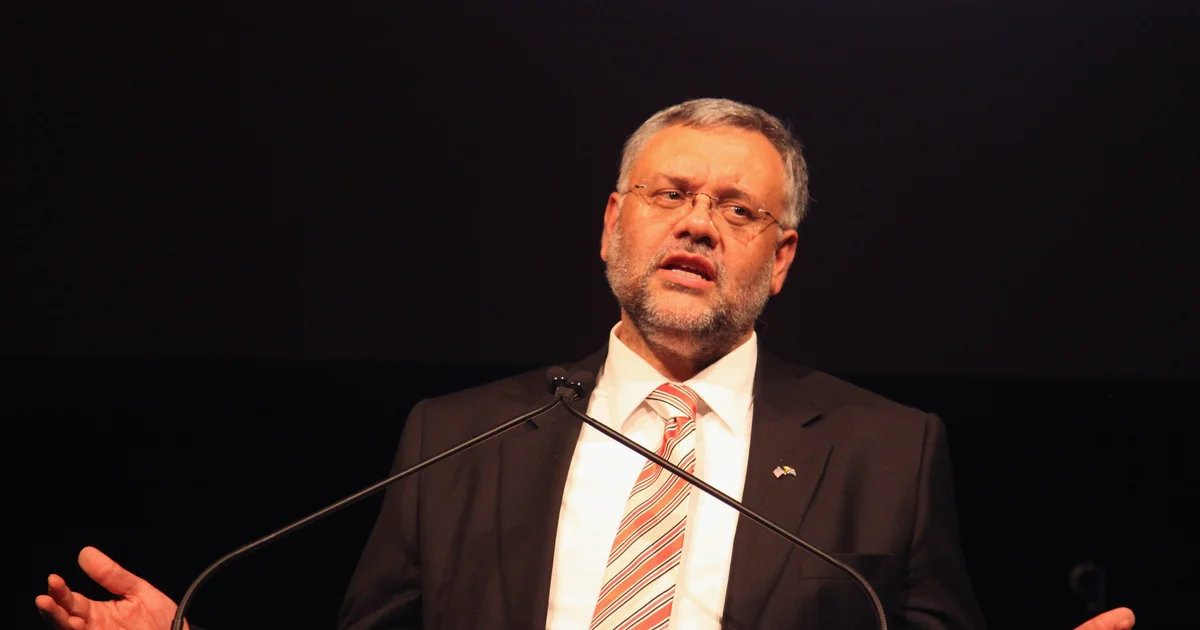The Life and Legacy of Ebrahim Rasool: A Visionary Leader

Ebrahim Rasool is a name synonymous with transformation, resilience, and a forward-thinking approach in South African politics and international diplomacy. A figure with a unique ability to unite people across diverse cultures and backgrounds, Rasool has established himself as one of the most influential leaders in South Africa’s post-apartheid era. With his deep commitment to justice, human rights, and community development, Rasool’s journey reflects the evolution of South Africa itself in the years following its democratic transition.
Early Life and Education
Born on February 15, 1970, in the vibrant city of Cape Town, Ebrahim Rasool’s early life was deeply influenced by the socio-political climate of apartheid South Africa. Growing up amid racial segregation and inequality, Rasool was acutely aware of the struggles that his people faced daily. His upbringing in the multicultural neighborhoods of Cape Town instilled in him a sense of unity and resilience, which would later define his leadership style.
Rasool’s academic journey was a crucial turning point in shaping his career. He attended the University of Cape Town, where he earned his degree in Politics and Philosophy. It was during his time at university that Rasool was exposed to the ideas of liberation and activism, setting the stage for his eventual involvement in the anti-apartheid movement. His education laid the groundwork for his role in advocating for human rights, social justice, and the empowerment of marginalized communities.
The Rise of Ebrahim Rasool in Politics
Ebrahim Rasool’s political career began in the early 1990s, as South Africa was transitioning away from the oppressive rule of apartheid. At the time, Rasool was a committed member of the African National Congress (ANC) Youth League, inspired by the teachings of Nelson Mandela and other ANC leaders. His youthful idealism and commitment to justice soon earned him a spot within the party’s leadership ranks.
One of Rasool’s key contributions in the early years of his political career was his work on the formation of the ANC’s political platform in the Western Cape. He was not only a passionate advocate for the end of apartheid, but he also pushed for policies that would ensure a fair and just transition to democracy for all South Africans. His efforts, along with those of many other activists, helped lay the foundation for the peaceful end to apartheid and the establishment of a democratic South Africa.
A Diplomat with a Global Vision
Ebrahim Rasool’s influence extended far beyond South Africa. After the country’s democratic transition, Rasool assumed an international diplomatic role, serving as South Africa’s ambassador to the United States from 2004 to 2008. In this capacity, he worked tirelessly to strengthen the relationship between South Africa and the United States, a task that required both diplomatic finesse and a deep understanding of global politics.
Rasool’s tenure as ambassador was marked by his commitment to fostering dialogue on issues such as global security, economic development, and the fight against HIV/AIDS. He worked to build bridges between governments, but also between the people of both nations, promoting cultural exchange, educational partnerships, and trade relationships. His efforts made him a respected figure not only in diplomatic circles but also in the broader global community.
Advocating for Social Justice and Equality
As a leader deeply committed to the principles of social justice, Ebrahim Rasool has always been at the forefront of initiatives aimed at reducing inequality and promoting human rights. Whether through his role in government or international forums, Rasool has consistently advocated for policies that empower the disenfranchised and elevate the voices of the marginalized.
In South Africa, Rasool worked extensively on initiatives related to poverty alleviation, education, and healthcare. His advocacy for universal access to quality education and healthcare has earned him recognition as a leader who seeks to create a more inclusive society. By championing policies that address systemic issues such as unemployment, economic inequality, and racial discrimination, Rasool has been instrumental in shaping a more equitable South Africa.
Ebrahim Rasool’s Legacy in South African Politics

Rasool’s legacy in South African politics is a testament to his unwavering commitment to the values of freedom, equality, and justice. Serving as the Premier of the Western Cape from 2004 to 2008, Rasool’s leadership was characterized by a focus on governance, service delivery, and improving the lives of ordinary South Africans. Under his leadership, the Western Cape made significant strides in addressing issues related to infrastructure development, healthcare, and education.
However, Rasool’s tenure was not without challenges. Despite his many achievements, he faced political opposition from within his own party, as well as criticism from those who believed that his efforts did not go far enough in addressing the deep-rooted issues facing the province. Nevertheless, his ability to navigate these challenges and maintain his principles earned him the respect of both his supporters and his critics.
Ebrahim Rasool’s Influence on the Global Stage
As a respected diplomat and political figure, Ebrahim Rasool’s influence extended beyond South Africa’s borders. He played a significant role in promoting South Africa’s foreign policy agenda on the global stage, particularly in the areas of human rights, peacekeeping, and economic development. His advocacy for a fairer global order led him to participate in international forums, where he consistently pushed for a more inclusive and just world.
Rasool’s role as an ambassador to the United States allowed him to build partnerships with key international actors, particularly in the fields of trade and development. He worked to ensure that South Africa remained an important player in global affairs and that the country’s voice was heard in discussions about global challenges such as climate change, conflict resolution, and sustainable development.
Ebrahim Rasool’s Vision for a United South Africa
A key aspect of Ebrahim Rasool’s political philosophy has always been his belief in the importance of unity. As a country that emerged from the divisions of apartheid, South Africa has always faced the challenge of fostering national unity among its diverse population. Rasool’s vision for the country has been one of reconciliation, understanding, and collaboration between different racial, cultural, and social groups.
His advocacy for national unity was evident in his support for the Truth and Reconciliation Commission (TRC), which aimed to heal the wounds of apartheid and foster a sense of shared history among South Africans. Rasool’s leadership has been characterized by his commitment to building bridges and promoting dialogue between communities that have historically been divided.
The Personal Philosophy of Ebrahim Rasool
Beyond his public role as a politician and diplomat, Ebrahim Rasool’s philosophy is rooted in the values of integrity, compassion, and empathy. He often speaks about the importance of listening to people, understanding their struggles, and working together to find solutions to complex problems. His approach to leadership is based on the idea that true change can only come when people come together, share their experiences, and collaborate for the greater good.
Rasool’s values have shaped his approach to governance, diplomacy, and community engagement. He is known for his humility, dedication, and genuine desire to make a positive impact on the world around him. His leadership style is not about seeking power or recognition, but about empowering others and leaving a lasting legacy of positive change.
Ebrahim Rasool: A Legacy for Future Generations
Looking ahead, Ebrahim Rasool’s legacy will continue to inspire future generations of leaders. His contributions to South Africa’s transformation, his work in promoting global cooperation, and his unwavering commitment to social justice serve as a blueprint for those who seek to make a difference in their communities.
In South Africa, Rasool’s name is synonymous with progress, inclusivity, and a vision of a better future for all. His work has shown that leadership is not just about political power, but about creating lasting change that benefits society as a whole. For those who seek to follow in his footsteps, Rasool’s legacy serves as a reminder of the power of compassion, collaboration, and commitment to the common good.






![Title: The Life and Journey of Ryan Watts: A Rising Star in [Industry/Sports/Tech/Entertainment] Ryan Watts](/wp-content/uploads/2025/04/convert-4-1-390x220.webp)